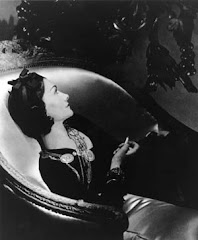Unluckily for those of us who write fiction or poetry or plays for a living, the reading public’s demand that every scribbler become a “writer of conscience" has sunk its teeth into our butts. There are few demands for accountants of conscience, or orthopaedic surgeons of conscience. So what is it about novelists and poets that makes us qualified to analyse political trends and influence public opinion? The writer’s life consists of the following : staring in sick dread at a blank sheet of paper or Word document; typing something then deleting it; lying on the sofa daydreaming; staring out the window; making another cup of tea. Out of such banal conditions is literature made. Writers are foolish people who mistake their own interior worlds for reality, who exaggerate for effect, who believe they can make the truth sound better than it is in its raw form, and who feel their way clumsily in the dark , operating without a plan. Nonetheless, from time to time the writer turns on the television or reads a newspaper and discovers that wars are breaking out or that governments are about to be elected. Newspapers contact us to ask for our opinions. Are we for or against this war? How will we vote? We are flattered to be asked. The woman who runs the corner shop is not asked. Our bank managers are not asked. Our opinions must be of significance, and why not?
In the current issue of Prospect magazine, I have a piece on why novelists and poets of all people are expected by readers to be experts in geopolitics. The article has been hidden behind a subscription button but I now find it's been picked up by a South African newspaper called The Weekender.
Here is a snippet and read on
Friday, 25 January 2008
Posted by
Linda Grant
at
11:20
3
comments
![]()
![]()
![]()
![]()
Labels: Literature, Opinions
When you can only buy one thing, what should the one thing be

Thinking about the advice that a Valentino evening dress will last a girl forever, I am inclined to think that were I to spend a great deal of money on a single item, would it really be an evening dress?
The problem with spending so much on a statement dress is that if you wear it only five or six times a year, at grand parties (and I have far more use for cocktail dresses than evening dresses anyway) then whenever you go to a grand party, you will always be wearing the same dress. Back in 2000 I bought an evening dress at Liberty and wore it hard but finally it went to the charity shop for someone else to wear. I felt like every time I made an entrance, people were thinking, here she is, in that dress of hers. I haven't replaced it with another long dress, long having been out of style except on the red carpet for some years now.
In the Autumn, I saw an Armani Collezioni coat which made my heart stop. It was in my size and its price was £895 which I most definitely could not afford, having a couple of months earlier bought a Collezioni jacket. I didn't even dare try it on in case it stuck to me, as if I were a girl in fairy story, the cloth burning my skin. But if I had bought that coat, yes, I would have worn it for the rest of my life. Of course it would have to endure a few dark lonely seasons alone in the wardrobe, but out again it would come, eventually. If you can only buy one stand-out, knock-down, blow the overdraft garment, I'd buy something which can be accessorised. Something not made to be looked at but to make you look as if you have everyday elegance and style.
But don't let that stop you buying me Valentino dress.
UPDATE
Ten minutes later, I'm starting to think I'm being a bit boring and I should go for the Valentino dress after all. You only live once etc, and to walk into a room in a Valentino . . .
Posted by
Linda Grant
at
07:00
7
comments
![]()
![]()
![]()
![]()
Why Armani is Armani

Jess Cartner-Morley, rounding up this week's couture shows, makes the following observation about Armani.
Giorgio Armani, although a relative newcomer to couture, is no slouch at making women look beautiful - which, after all, is the point here. Hilary Swank, in the front row, was in raptures, and it is easy to see why actors such as Swank and Cate Blanchett - women who play on having hard edges to their personality as well as softness, who have eyes that flicker and watch rather than just flutter beneath false lashes - are drawn to his gowns. The fabrics were pure couture princess: organza, puckered silk, chiffon muslin. But the silhouette, and the lines traced in bugle beads and Swarovski crystals, had a sleek, art deco Savoy-esque elegance.
The intelligent woman who also wishes to look beautiful, who cares about appearances and who understands that the body is not merely a wrap for the mind - the designer who can dress her (or shall we say us) will always outlive his flamboyant rivals .
Posted by
Linda Grant
at
06:28
11
comments
![]()
![]()
![]()
![]()
Thought for the day
Posted by
Linda Grant
at
06:19
1 comments
![]()
![]()
![]()
![]()
Labels: Thought for the day

